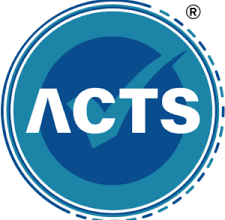In an era dominated by technology, digital literacy has become an essential skill for students to navigate the digital landscape effectively. Education Portal and digital productivity tools play a pivotal role in promoting digital literacy in education by providing students with the resources and opportunities to develop critical digital skills. In this article, we’ll explore the importance of digital literacy in education and how education portals and digital productivity tools contribute to its promotion.
Understanding Digital Literacy
Digital literacy encompasses a range of skills and competencies that enable individuals to use digital technologies effectively and responsibly. These skills include navigating online platforms, evaluating digital information, communicating online, and protecting personal data and privacy. In today’s digital age, digital literacy is essential for students to succeed academically, professionally, and socially.
Access to Educational Resources
Education portals serve as centralized platforms that provide students with access to a wealth of educational resources, including textbooks, articles, videos, and online courses. By navigating education portals, students develop essential digital literacy skills such as information literacy, Digital productivity and online research. They learn how to locate, evaluate, and use digital resources effectively to support their learning goals.
Digital Productivity Tools
Digital productivity tools within education portals enable students to enhance their digital literacy skills and productivity. These tools include word processors, presentation software, spreadsheets, and collaboration platforms. By using digital productivity tools, students learn how to create, edit, and share digital content, collaborate with peers on projects, and manage their time and tasks efficiently.
Critical Thinking and Problem-Solving
Digital literacy promotes critical thinking and problem-solving skills among students. Education portals provide access to interactive multimedia resources, simulations, and educational games that engage students in problem-solving activities and real-world scenarios. By analyzing information, evaluating evidence, and synthesizing knowledge, students develop critical thinking skills that are essential for navigating the complexities of the digital world.
Digital Citizenship and Online Safety
Education portals play a crucial role in promoting digital citizenship and online safety among students. Through online modules, tutorials, and resources, students learn about the rights, responsibilities, and ethical considerations associated with digital technology use. They also gain awareness of online risks such as cyberbullying, identity theft, and misinformation, and learn strategies to protect themselves and others online.
In conclusion
promoting digital literacy in education is essential for preparing students for success in a digital world. Education portals and digital productivity tools provide students with access to educational resources, digital productivity tools, critical thinking and problem-solving opportunities, digital citizenship and online safety education, and support lifelong learning and adaptability. By integrating digital literacy into the curriculum and leveraging education portals and digital productivity tools, educators can empower students to become confident, competent, and responsible digital citizens who are prepared to thrive in an increasingly digital society.
In addition to academic growth, promoting digital literacy also fosters the development of digital citizenship and online safety awareness. As students engage with digital platforms and online communities, they learn the importance of ethical behavior, respect for privacy, and responsible use of digital resources. These lessons are integral in cultivating a generation of responsible digital citizens who can navigate the digital world safely and ethically.
Furthermore, embracing digital literacy in education supports lifelong learning and adaptability. In an era where technological advancements are constant and rapid, the ability to learn, unlearn, and relearn becomes increasingly important. By instilling a culture of continuous learning and adaptability, educators empower students to embrace change, seize opportunities, and thrive in an ever-evolving digital society.
In conclusion, promoting digital literacy in education is not just a necessity; it is an investment in the future. By integrating digital literacy into the curriculum, leveraging education portals and digital productivity tools, and fostering a culture of digital citizenship and lifelong learning, educators can empower students to become confident, competent, and responsible digital citizens ready to shape the future of our increasingly digital world.




